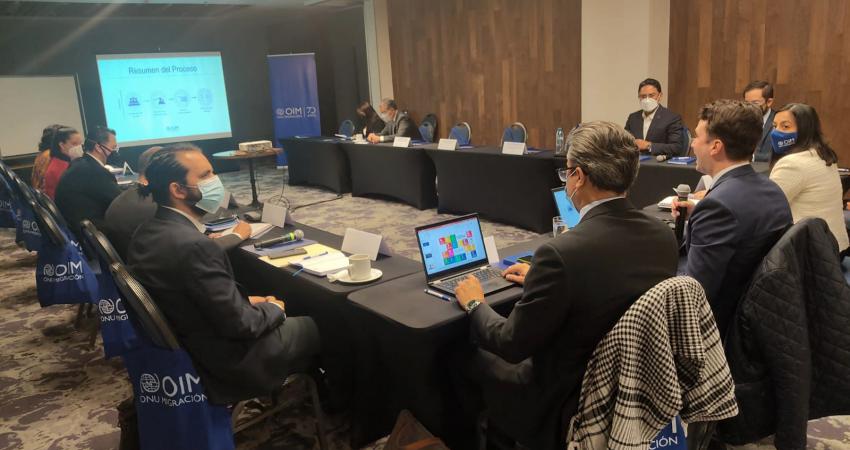Tamaulipas adopts course of action to improve on migration governance

The International Organization for Migration (IOM) today recognized the experience of the state of Tamaulipas in the area of migration in a report prepared jointly with its authorities. This report examines the current public migration policy, identifies good practices in this area, and outlines possible areas of opportunity to respond to the needs of migrants in a comprehensive manner.
"Tamaulipas has a long history of receiving returning Mexicans, which gives it significant experience in the treatment, orientation and accompaniment of thousands of people who transit through this state, experiencing significant challenges in terms of attention to migrants in an irregular situation," said Dana Graber Ladek, IOM Chief of Mission, in the virtual presentation of the report.
The head of IOM, the United Nations Agency for Migration, considered it "a very plausible achievement" that Tamaulipas has joined the Network of States Implementing Migration Governance Indicators in Mexico with the report and the plan.
In order to improve the attention to migrants in Tamaulipas, the state government, through the Tamaulipas Institute for Migrants (ITM), voluntarily joined the implementation of the Migration Governance Indicators (MGI), a methodology developed by the IOM, which has served as the basis for the report.
After adopting and starting to work with the indicators, in 2021 Tamaulipas completed the analysis of its migration governance and identified as good practices the legal and human rights orientation provided by the ITM to migrants; the alliances formed with international and civil society organizations to offer migration counseling, medical and psychological care to migrants, as well as the installation of information hubs in Nuevo Laredo and Ciudad Victoria, where more than 4,500 foreigners have been assisted.
Regarding the areas of opportunity detected, the report considers pertinent the creation of orientation and welcome programs for newly arrived foreigners; the participation of the state government in international networks of knowledge on migration issues; and the development of research and monitoring of the demand for immigrants in the state's labor market.
Likewise, it is considered important to create an Advisory Council which will add the contributions of academia, civil society and the private sector to the strategies of the work plan that will be carried out after the presentation of the report. This state had by 2020 more than 764,000 immigrants and 526,000 emigrants, according to data from the National Institute of Statistics and Geography (INEGI), being the fifth in Mexico in terms of foreign-born population.
With the presentation of this analysis so far, the MGI methodology has been implemented in Mexico in four states: Chihuahua, Oaxaca, Guanajuato and Tamaulipas. Globally, 92 national governments and 50 local authorities have used the MGIs to examine their migration governance.
With the launch of the MGIs, IOM will continue to collaborate in Mexico with other states that, like Tamaulipas, are interested in facilitating safe, regular, orderly and dignified migration, through the promotion of public policies planned and managed in line with the Global Compact on Migration and the Sustainable Development Goals (SDGs).
Read the Tamaulipas report (in Spanish): bit.ly/IGM-TAMPS
Link to other MGI reports in the region and around the world through the GMDAC website: https://migrationdataportal.org/es/overviews/mgi#0
For more information please contact: Alberto Cabezas, IOM Mexico National Communications Officer, email: acabezas@iom.int, tel: +55 4525 8361.
